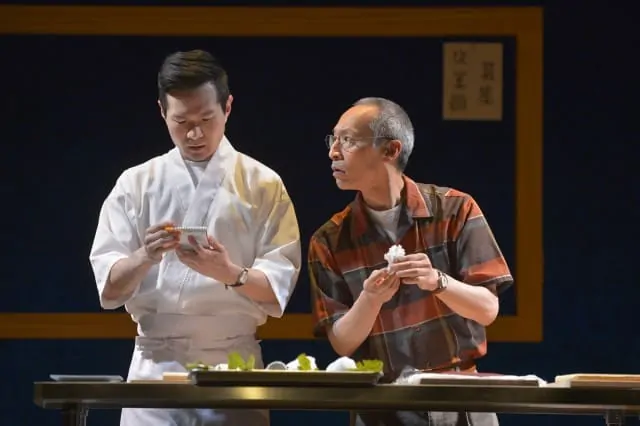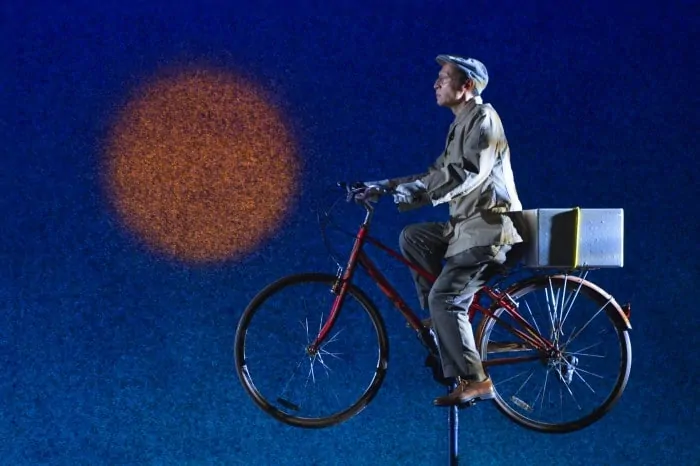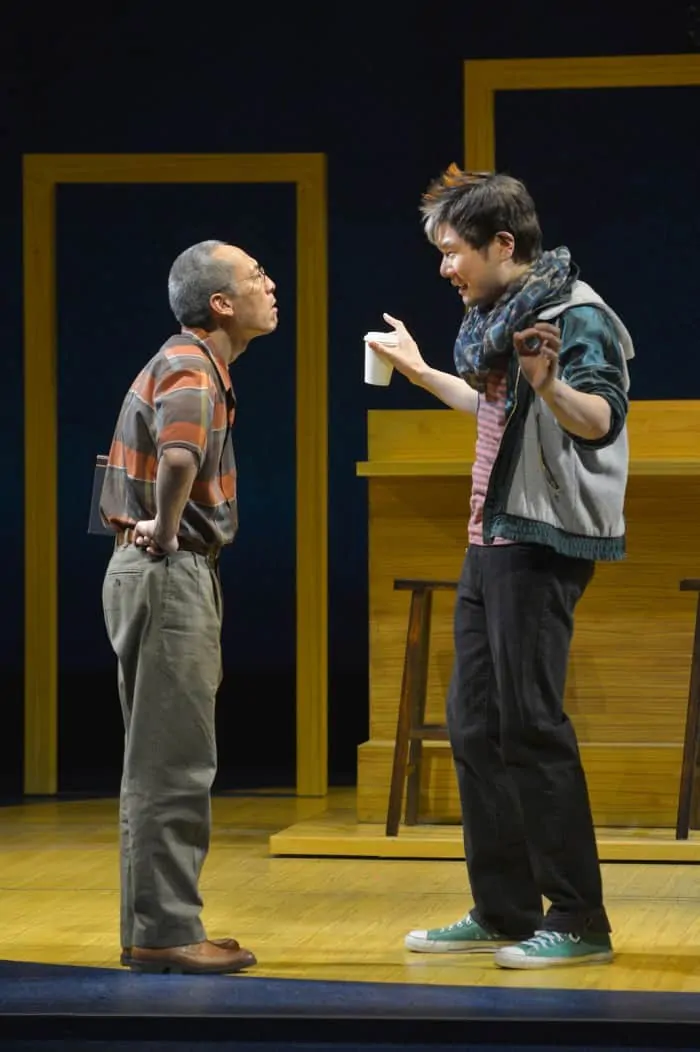
“Do you know where all the fish have gone?”
When sushi master Koji, (Francis Jue) plaintively addresses an ocean, empty of the massive yellow tuna needed to make superior sushi, he might as well ask where the last normal presidential candidate went, or where our children’s childhood disappeared. Existential questions like these lie at the heart of Tokyo Fish Story, the newest TheatreWorks production, which just opened at the Lucie Stern Theatre in Palo Alto.
Arthur Keng, who played a long list of small roles, spoke indirectly of this in a brief conversation after the show. When I noted that the stage was a wild mix of energies, he noted that the play is a study in contrasts, generationally, romantically, professionally, and culturally. These contrasts felt like a shock of colors and drove the play forward as much as any plot device.
These contrasts produce tension even before the play started, as audience absorbed the iterations of nested right angles formed by plain wood framing a rich, luminous sky.
The level of attention to detail lavished on this play, set in Tokyo, immediately recalled Jiro Dreams of Sushi, the 2011 documentary that consistently tops Netflix most-viewed lists. Jiro is, of course, about Sukiyabashi Jiro, the 85-year-old sushi master and owner of a ten seat, 3-star restaurant in Ginzi subway station, superficially, at least similar to Koji Sushi, the restaurant at hand.
The level of attention to detail lavished on this play, set in Tokyo, immediately recalled Jiro Dreams of Sushi
The comparison between Koji Sushi and Sukiyabashi Jiro isn’t altogether accidental. This isn’t strip mall sushi, but sushi-as-art form, sushi-as-meditation. This is sushi like the sushi prepared by famed chef Toshio Sakuma, former owner of Steve Jobs’ favorite restaurant and Apple chef. Sakuma spent a day with the cast, teaching how to tie a bow in the chef’s apron, massage an octopus, and convincingly wield a knife with zen focus.


Francis Jue navigated the distance from the reserved and fearsome shop owner to a more ethereal and emotional figure gracefully. While I found this distance a touch artificial, Jue’s soliloquys are so graceful I surrendered my disbelief to the musicality of his voice and his flowing quality of motion.
The distances navigated by James Seol in his performance of Koji’s senior apprentice Takashi, are quieter, but equal in magnitude. Through Takashi we see Koji’s artistry. Intense at every moment, he remains a study in restraint throughout the play.
Instead of going for the big ending, Tokyo Fish Story ends quietly, with a perfect grace note before melting into the luminous evening sky. It runs through April 3rd.
Photo credit: Kevin Berne


